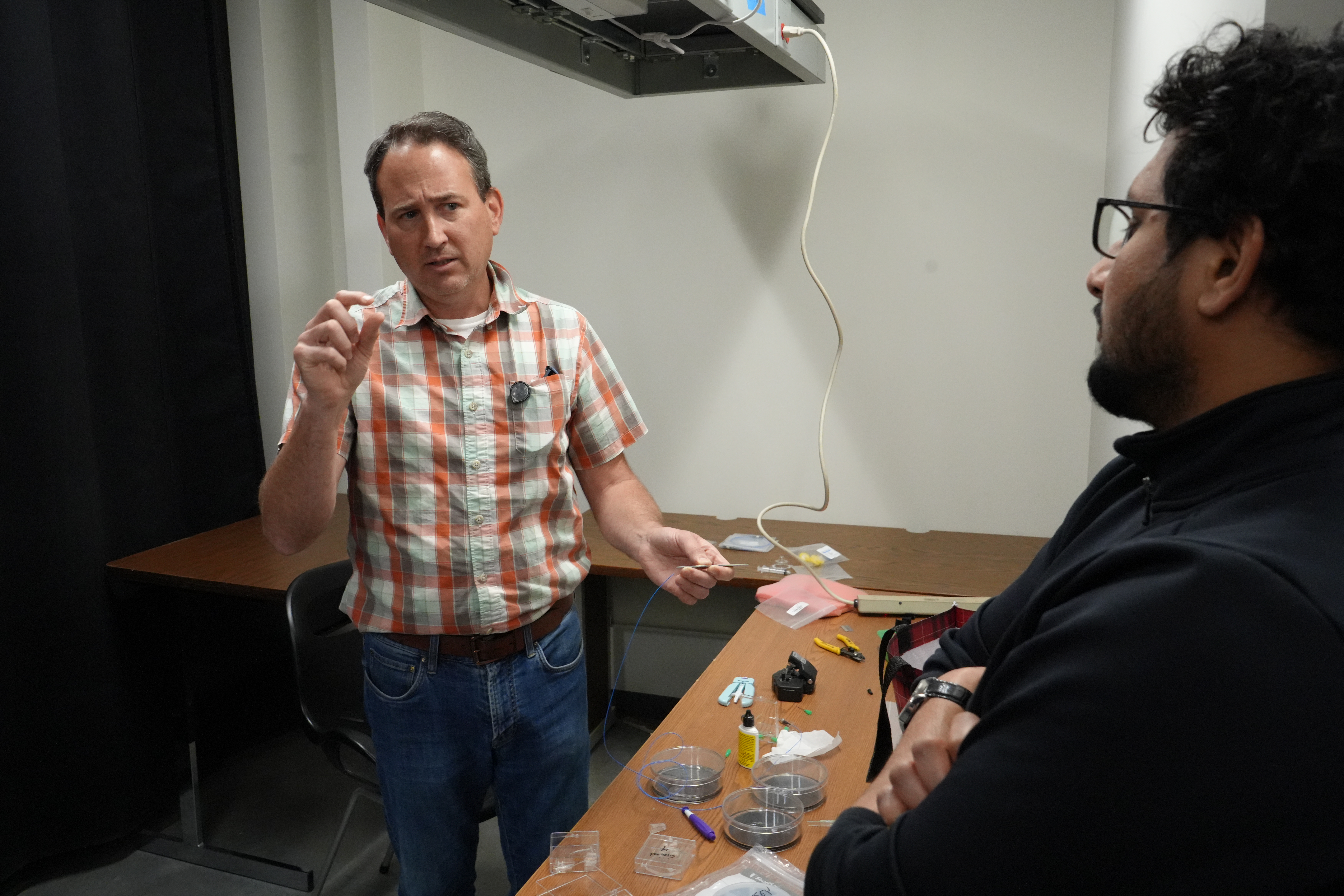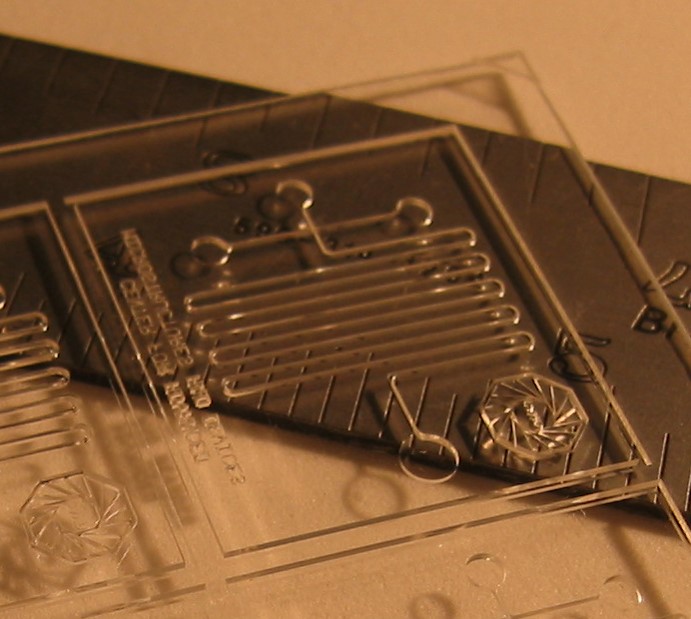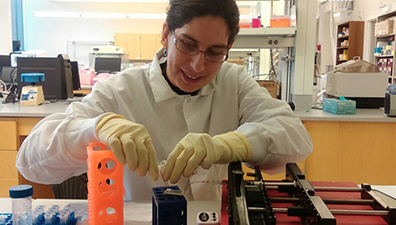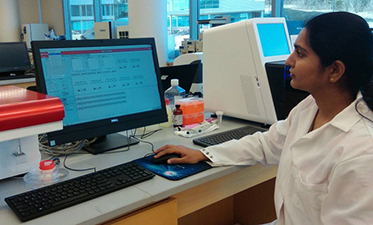Visiting Scholar Program
About the Program
The CBM² Visiting Scholar Program is intended to provide the research and medical community the opportunity to visit our laboratories to become familiar with our two main core competencies by staying for an extended period of time in our laboratories across the many institutions affiliated with the Center. Participants can include any interested party, such as graduate and undergraduate students, post-doctoral fellows, faculty, or industrial scientists and researchers.
The two main technical areas of emphasis for our Visiting Scholar Program include fabrication of plastic-based microfluidics and nanofluidics and liquid biopsy marker isolation and analysis.

Plastic-Based Microfluidics and Nanofluidics
CBM2 Visiting Scholar Program is intended to provide the research and medical community the opportunity to visit our laboratories to become familiar with our two main core competencies, by staying for an extended period of time in our laboratories across the many institutions affiliated with the Center. Participants can include any interested party, such as graduate students, post-doctoral fellows, faculty, or industrial scientists/researchers.
 The two main technical areas of emphasis for our Visiting Scholar Program include fabrication of plastic-based microfluidics and nanofluidics and liquid biopsy marker isolation and analysis.
The two main technical areas of emphasis for our Visiting Scholar Program include fabrication of plastic-based microfluidics and nanofluidics and liquid biopsy marker isolation and analysis.
Plastic-based microfluidics and nanofluidics is becoming a burgeoning area in clinical and research applications due to the fact that devices can be produced in a high production mode and at low-cost using a variety of fabrication modalities, such as hot embossing, injection molding, and roll embossing. Participants in this program can become familiar with rapid prototyping in plastics, modification chemistries of plastics, high-scale production of both micro-and nanostructures, and applications of plastic devices in a variety of application areas.
Our Experience
CBM2 has a long history of experience with plastic microfluidics and nanofluidics, and has extensive resources to support work in these areas:
Rapid prototyping equipment
Laser writer (CO2, and excimer)
High precision micromilling
Hot embossing machines
Injection molding machines
Nanoimprint lithography (NIL)
Metrology Tools (AFM, SEM, non-contact and contact profilometry)
Dry Etching (DRIE, ICP-RIE)
Thin film deposition (E-beam, axis sputterer)
Class 100, 1000, and 10,000 cleanrooms
Tools for optical lithography
Plastics Microfabrication and Nanofabrication
Our plastics microfabrication and nanofabrication program is headed by Prof. Sunggook Park (Louisiana State University; sunggook@lsu.edu), Prof. Michael Murphy (murphy@lsu.edu), and Prof. Steven A. Soper (ssoper@ku.edu). Please contact any of these individuals if you would like to learn more about the opportunity to participate in our program.
 Liquid biopsy markers (circulating tumor cells (CTCs), cell free DNA (cfDNA), and extracellular vesicles (EVs)) isolation. This area of interest can provide participants with the opportunity to become familiar with the biology of liquid biopsy markers, uses of these markers in clinical applications, understanding the use of microfluidics for their enrichment from clinical samples, and the downstream molecular analysis of their cargo.
Liquid biopsy markers (circulating tumor cells (CTCs), cell free DNA (cfDNA), and extracellular vesicles (EVs)) isolation. This area of interest can provide participants with the opportunity to become familiar with the biology of liquid biopsy markers, uses of these markers in clinical applications, understanding the use of microfluidics for their enrichment from clinical samples, and the downstream molecular analysis of their cargo.
- Microfluidic devices for the isolation of all three markers operated by a robot
- Conventional techniques for isolation including CellSearch (CTC), ultracentrifuge (EVs), and cfDNA isolation kits
- Next Generation Sequencing, RT-qPCR, droplet digital PCR, Western blotting
- Nanoparticle Tracking analyzer
- High levels of expertise to support liquid biopsy marker analysis
Liquid biopsy program

Our liquid biopsy program is headed by Dr. Andrew Godwin at the University of Kansas Medical Center (KUMC; agodwin@kumc.edu) and Prof. Steven A. Soper (University of Kansas, Lawrence; ssoper@ku.edu). Please contact either one of these individuals if you would like to learn more about the opportunity to participate in our program.